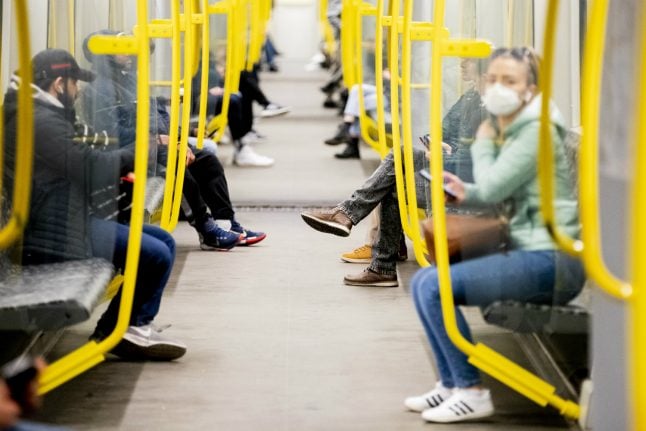Face masks are mandatory in Germany in certain public places, such as in shops and on public transport in a bid to control the spread of coronavirus.
But many people don't wear them properly, often just covering their mouth and leaving their nose poking out the top… which defeats the whole purpose of obligatory face masks.
But Berlin's BVG, which operates the capital's underground system, trams and buses, has come up with an idea to get people to wear their mask over their nose: they've called on people to abandon deodorant.
Yes, anyone who's spent time in Berlin knows just how smelly U-Bahn trains and buses can get in the summer, particularly with no air conditioning and when there are lots of people on board.
So it's true that adding a lack of deodorant to the mix might encourage people to actually cover their noses.
In a social media post, the BVG said: “You leave us no choice.”
“Because so many people think that they can wear the mask under their nose, we are now pulling other strings – the BVG calls on everyone to give up deodorant. Still want to keep your nose exposed?”
Ihr lasst uns keine andere Wahl. pic.twitter.com/mf8YcCnwc8
— Weil wir dich lieben (@BVG_Kampagne) July 1, 2020
The move received a lot of attention, with people supporting the call. As of Thursday morning, the post had received 4.6k likes.
“I love it, best argument ever,” said one Twitter user.
I love it, bestes Argument überhaupt. Ihr seid echt der Knaller <<< wirklich positiv gemeint ??
— Corinna Stein (@connilein7664) July 1, 2020
As The Local reported, Berlin decided to introduce fines for people who refuse to wear a face mask when its obligatory.
The local government voted on Tuesday June 23rd to slap €50 fines on people who don't wear a face mask when it is mandatory to do so, such as when travelling on public transport or in shops.
The fines can be increased up to €500 for repeat offenders.
READ ALSO: Berlin to fine people who flout coronavirus mask rules
Not the first BVG joke…
The BVG is famed for its satirical sense of humour. In December, they applied for UNESCO World Heritage status, humorously portraying in a parody video that their historically slow and antiquated service qualifies them as a landmark.
The operator hit the headlines recently when they poked fun at coronavirus conspiracy theories which have circulated around Germany.



 Please whitelist us to continue reading.
Please whitelist us to continue reading.
Member comments